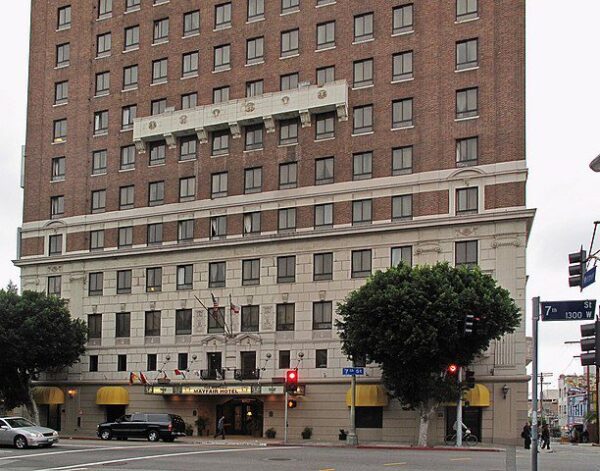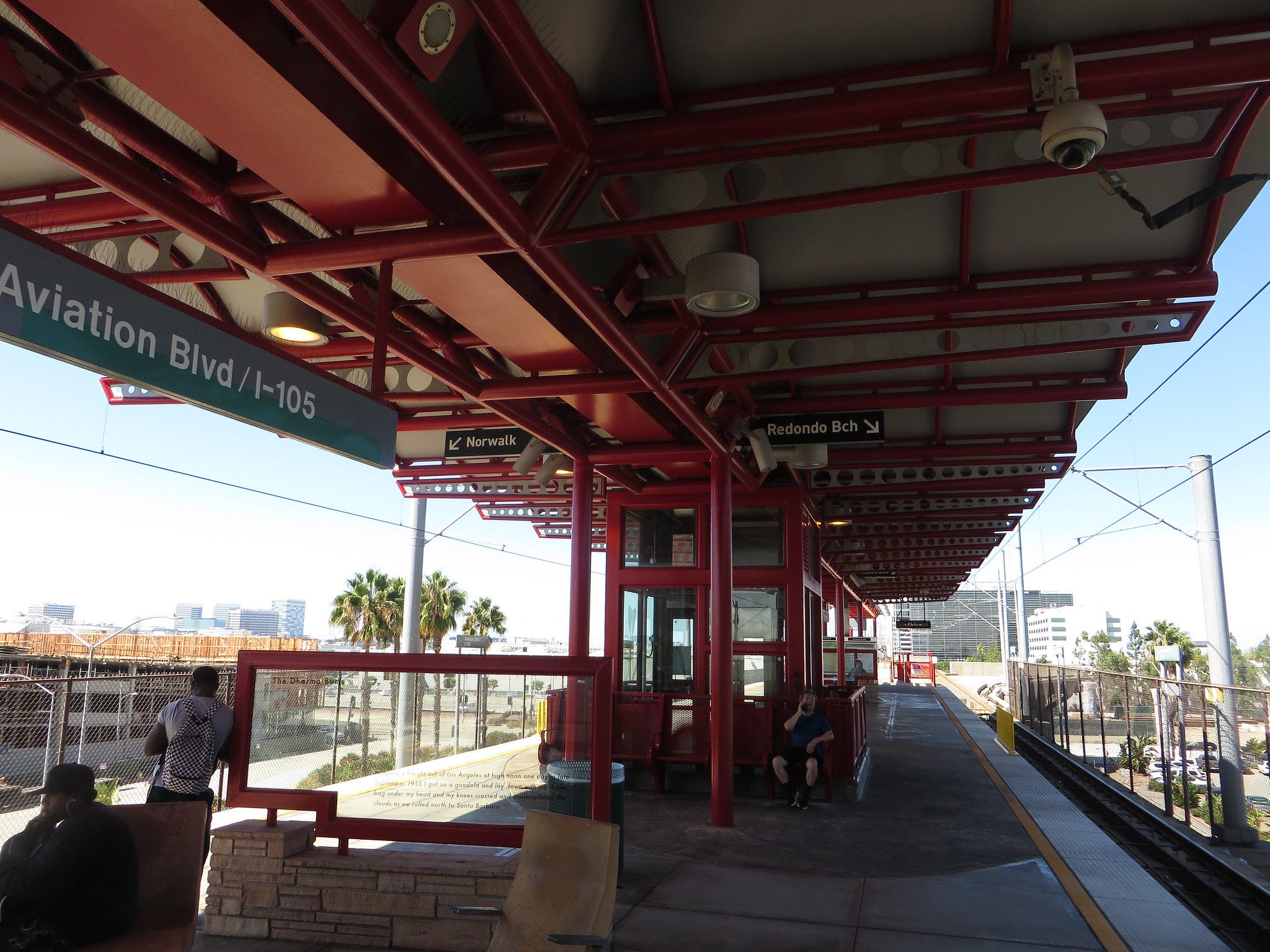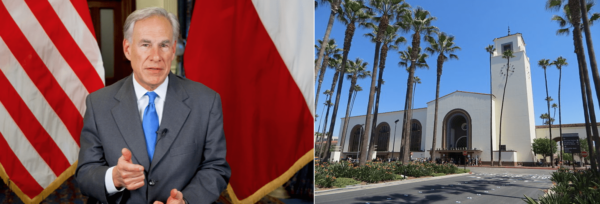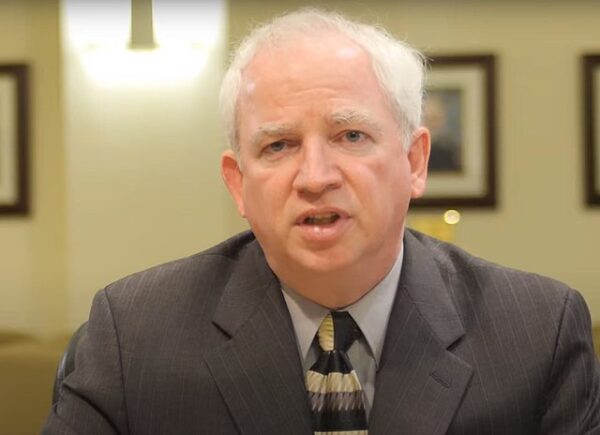By Jose Herrera
The Los Angeles City Council is scheduled to vote Friday on a proposal from Mayor Karen Bass to purchase the Mayfair Hotel for approximately $83 million and use it as interim housing.
The council’s Budget, Finance and Innovation Committee on Thursday amended and approved the proposal to use the Westlake district hotel as interim housing under Bass’ Inside Safe initiative, which aims to bring unhoused Angelenos inside to motels and address encampments across the city.
The panel’s discussion came a day after the Housing and Homelessness Committee and Government Operations Committee had a joint session that went into the night to review the same proposal.
“This one is not going to go that late because we’ve exhausted a lot of discussion, although we will go as long as we need to,” said Councilman Bob Blumenfield, who chairs the budget committee and who also sits on the housing committee. “As the discussion went on, it became apparent we needed to do a deeper dive on some of the funding aspects.”
Blumenfield and Councilwoman Eunisses Hernandez introduced several amendments to Bass’ proposal during the joint meeting Wednesday. The amendments would ensure assurances for residents living near the hotel, and additional financial reports to track expenditures and progress of the rehabilitation of the facility.
Ultimately, the panel in two separate votes approved the amendments 4-0, and approved the underlying proposal as amended 3-1. Councilwoman Monica Rodriguez, who sits on the budget committee, was absent from Thursday’s meeting, and Councilman Tim McOsker, also a committee member, voted against the underlying proposal.
McOsker told City News Service that he is “interested in pursuing the idea, but it’s a dramatic change in city policy” to own permanent interim housing. McOsker further added he would like to have a discussion with his colleagues to establish policy around the issue.
The Government Operations Committee unanimously supported the amended proposal, while the housing committee voted 3-1 for the proposal. Rodriguez, who sits on the housing committee was the sole “no” vote and Councilman Marqueece Harris-Dawson, who also sits on the housing committee, was absent during the vote Wednesday.
“The city should do everything possible to house those experiencing homelessness, but not at the expense of transparent and prudent financial decisions. To propose a rushed acquisition of a property we’ve paid ($11 million) in damages to repair and take possession without repairs being completed, is not a deal I believe any taxpayer would view as too good to pass up,” Rodriguez said in a statement.
Amy Benson, director of the Real Estate Services Division of the Department of General Services, said the city is estimated to spend $60 million in the acquisition of the hotel in its “as-is condition.” Bass’ proposal outlined an annual operating cost of about $5.5 million, which includes utilities, landscaping, facility maintenance and interim security until the operator contract is in place.
The Housing Authority of the City of Los Angeles will develop a five-year capital plan for all major capital repairs, included as a $1.5 million line item in the overall budget. The city’s Bureau of Engineering would conduct renovations estimated at about $22 million.
“Hard and soft” costs such as repairs and furniture replacement to hotel rooms are estimated at $2.8 million.
Approximately $2 million will be spent for long-term repairs to the hotel, Benson said. In addition, an estimated $772,000 will be used to convert an existing pool into a pet area and for the installation of laundry facilities, as well as other improvements.
If the proposal is approved by the council, the city is slated to operate and maintain the hotel no later than Aug. 31 once the deal is closed. The hotel will be reopened by January 2024 to transition occupants from the LA Grand hotel.
Funding for the Mayfair acquisition and renovation comes from several sources, according to a report from the city administrative officer, which includes the following:
- $27.6 million from Community Development Block Grants, federal funding for projects aimed at improving the quality of life for people with low or moderate incomes;
- $18 million from Proposition HHH, a bond measure approved by Los Angeles voters in 2016 to fund housing and facilities to address the homelessness crisis;
- $10 million from Municipal Housing Finance funds;
- $15 million from the city’s general fund;
- $10.5 million from the Homeless Emergency Account, or Inside Safe funding; and
- $1.9 million from Closing Credits.
The Mayfair would be used to relocate and house unhoused Angelenos specifically from Skid Row for two years before taking in unhoused people from other parts of the city.
This was a commitment by Bass’ office in order to receive a $60 million encampment resolution grant through the county’s Housing for Health program to contract with the Weingart Center, a nonprofit agency that will operate the facility and provide services.
Bass’ proposal to purchase the 15-story, 294-room Mayfair Hotel at 1256 W. 7th St. has raised concerns among nearby residents.
Many residents fear the use of the hotel for interim housing will impact the safety of children who attend three schools near the hotel, affect local businesses and the cleanliness of their community — as it happened before when the hotel participated in Project Roomkey, a state and county initiative that transformed hotels into temporary homeless shelters.
The goal was to provide unhoused individuals with interim housing to stay inside and prevent the spread of coronavirus. However, the Los Angeles Times reported the hotel’s participation in the program resulted in a “staff of security guards, nurses, hotel managers and others grappling with drug overdoses, property damage and what they characterized as aggressive and even violent behavior.”
The city recently paid the hotel’s owner $11.5 million for damage claims filed over Project Roomkey, according to Blumenfield.
Residents reported feeling unsafe, crime and children being exposed or bearing witness to drugs and violence.
Tanja Boykin, chief operating officer for the Weingart Center, provided a list of services her agency would provide and assurances that the operation would be different from Project Roomkey.
“The services unlike Project Roomkey are not voluntary, they are mandatory,” Boykin said. “This is interim housing with a goal of permanent housing in the future. So while we’re removing barriers through all of our clinical and medical resources, our case managers are ensuring that our clients are document ready and are matched in the appropriate setting.”
Bass’ staff also emphasized the community would not be negatively impacted and reiterated their commitment to work with Hernandez, who represents the area, and those constituents.
Hernandez was able to pass amendments that would bring funding for more street cleaning and ensure Westlake residents would have access to Bass’ office, among other things.
“I want to be very clear on why I’m putting these amendments forward. We are the guinea pigs in this process,” Hernandez said. “We need to set standards because my community has demanded that we meet their needs and what they’re calling for.”
“I’m a ‘yes’ and person trying to find solutions and meet at the table. This is it for me right here,” she added.







